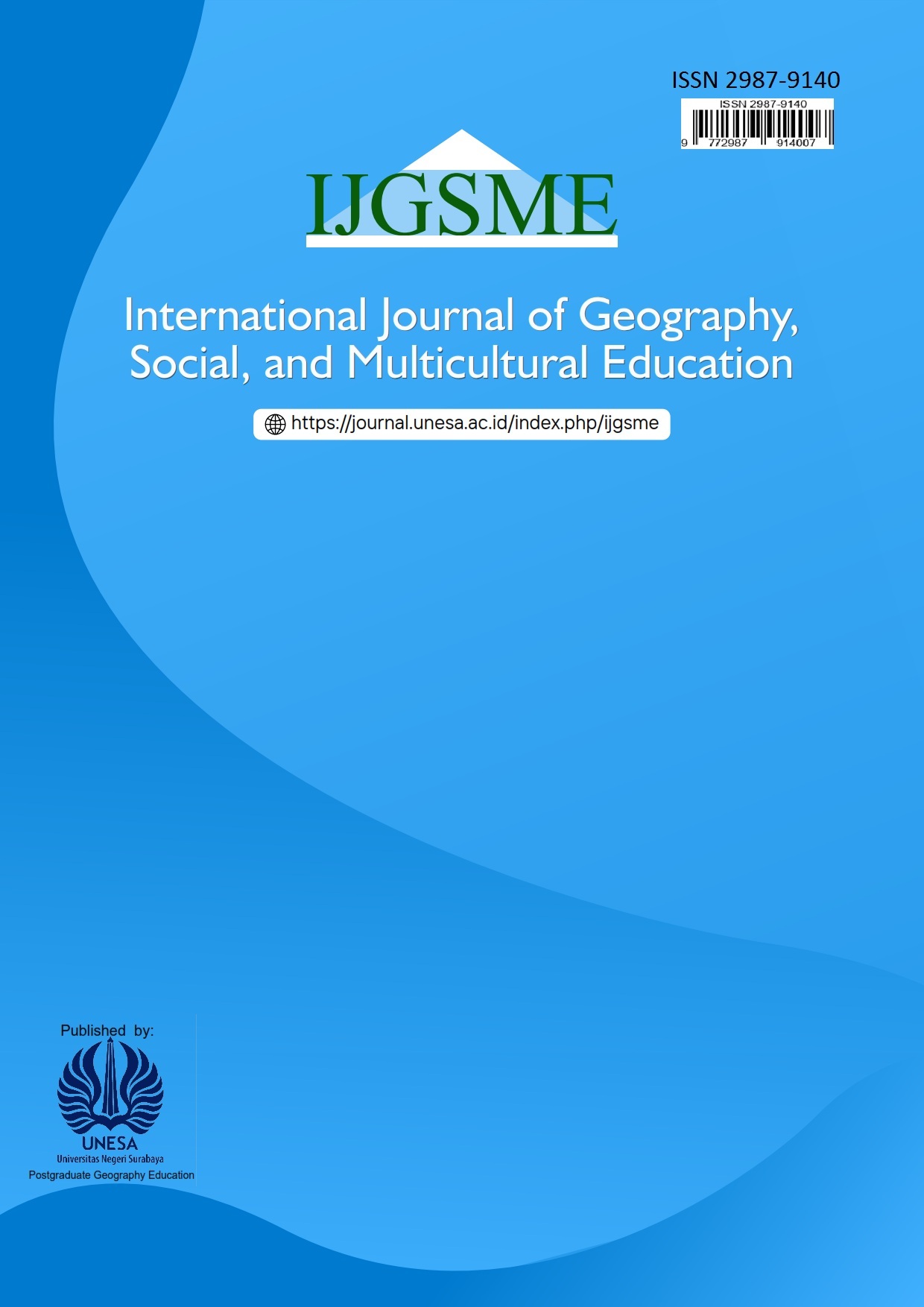The Effect of Project Based Learning on Student's Social Science Learning Results Reviewed from the Student's Initial Ability
DOI:
https://doi.org/10.26740/ijgsme.v2n1.p9-21Keywords:
Project Based Learning, Learning Outcomes, Students' Initial AbilitiesAbstract
This study aims to evaluate the effect of using Project Based Learning (PBL) approach on students' Social Studies learning outcomes, by considering students' initial ability as a relevant factor. The research method used is statistical analysis of student learning outcomes data divided into two groups, namely the group that applied PBL and the control group that used conventional learning methods. The results of the analysis showed that there was a significant difference in social studies learning outcomes between the two groups, with a significance value (sig.) obtained of 0.00 <0.05. This indicates that PBL has a positive impact in improving students' understanding of social studies material. In addition, there was also a significant difference in social studies learning outcomes based on students' initial ability, with a sig. of 0.00 < 0.05. However, there was no significant interaction between the application of PBL and students' initial ability in determining students' learning outcomes, as shown by the sig. value of 0.622 > 0.05. The results of this study provide an important contribution in understanding the effectiveness of PBL in improving students' social studies learning outcomes, as well as its implications for the development of more effective learning strategies in the future.
Downloads
Published
How to Cite
Issue
Section
License
Copyright (c) 2024 Ahmad Imam Khairi, George Shava

This work is licensed under a Creative Commons Attribution-ShareAlike 4.0 International License.
 Abstract views: 554
,
Abstract views: 554
, PDF Downloads: 42
PDF Downloads: 42








